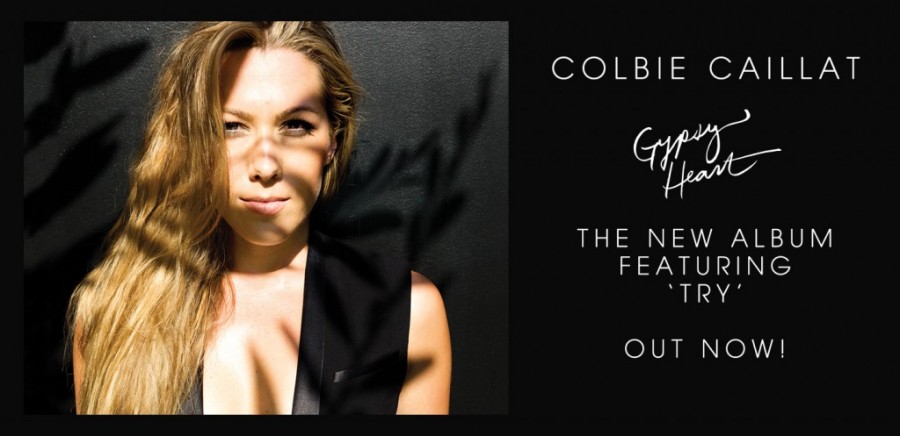“Gypsy Heart” marks Colbie Caillat’s masterful transition to pop
Photo courtesy of www.colbiecaillat.com
Colbie Caillat’s fifth studio album, “Gypsy Heart,” was released on Sept. 30.
October 31, 2014
An artist’s decision to change genres is almost always met with stiff opposition. Taylor Swift, country girl turned pop queen, is just one of many iconic figures who come to mind. However, this shift to another realm of music doesn’t always have to be a negative one.
Singer-songwriter Colbie Caillat released her fifth studio album, titled “Gypsy Heart,” on Sept. 30. “Gypsy Heart” is somewhat startling at first, as the tracks are flooded with contemporary pop influences. I think the iTunes Editors described Caillat’s transition perfectly: “Southern California beach-pop queen Colbie Caillat enters the dance club scene.”
The songs on “Gypsy Heart” differ significantly from Caillat’s third album, “All of You,” which included the moderately successful tracks “I Do” and “Brighter Than the Sun.” There is an even greater disparity between “Gypsy Heart” and songs such as “Bubbly” and “Realize” from “Coco,” Caillat’s debut album, which first thrust her into the national spotlight in 2007.
However, I think it’s wrong to hate on Caillat for wanting to try something new. “Gypsy Heart” may be more geared toward commercial success – there is a noticeable absence of bare acoustic guitar chords, while Auto-Tune layering is present in almost every song – but I feel that Caillat is moving in the right direction. Her music remains infectiously optimistic and, most importantly, does not stray from her sunny disposition. Caillat’s style might have changed, but her message has not, and that makes all the difference.
The lead single “Try,” released in June, is easily the highlight of the 12-track album. The soothing instrumentals allow listeners to focus on Caillat’s sweet yet vulnerable voice and the song’s uplifting lyrics. “Take your makeup off / Let your hair down / Take a breath / Look into the mirror, at yourself / Don’t you like you? Cause I like you,” Caillat sings.
The single’s release was accompanied by a touching lyric video. The video begins with a heartening message – “We are not alone in our insecurities” – and includes a montage of shots of female celebrities and Caillat’s friends and fans, all with little or no makeup on.
In July, Caillat also released an official music video for “Try” that went viral, garnering rave reviews from proponents of female empowerment. As the video progresses, Caillat and women of varied ages and ethnicities slowly remove their makeup and hair, emphasizing the importance of natural beauty. The before and after shots are dazzling and poignant; there is a startling contrast between the put-together yet melancholy women and their fresh-faced, unburdened and smiling selves. Both videos are an important step forward in the music industry for encouraging women to view their natural features in a positive light.
Although “Try” captures much of the attention in the “Gypsy Heart” album, the other, less well-known songs are just as lovely. As the first track, “Live It Up” introduces the album with a carefree and upbeat melody. It’s one of those songs that instantly cheer me up, and I always find myself bouncing on my feet and humming along when I listen to it.
Another one of my favorites from the album is “If You Love Me Let Me Go,” a fluid song that deals with heartache in a tender, bittersweet way. The melody is complemented by electronic pulses that add to the tune but don’t overpower the raw lyrics: “I’m tired of always sleeping with your ghost / Chasing away the things I need the most / If you really love me, you would let me go.”
Caillat has certainly created a charming work of art with this latest album. Her songs deal with everyday problems that everyone can relate to, showing that she is grounded in reality despite her rising fame. I’ve been a fan of Caillat since the days of “Coco,” and I’m thrilled to see that her influence is growing. I wouldn’t be surprised to see her join the ranks of figures such as Beyoncé, Jennifer Lawrence and Emma Watson when it comes to empowering females and effecting other forms of social change.






